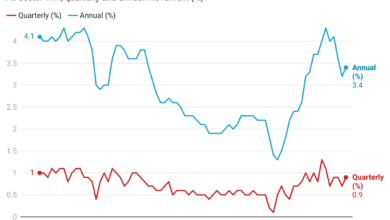New Study Reveals Hidden Factor Driving Up Cost of Living: ‘Financial Strain Intensifies’

Climate change is worsening the cost-of-living crisis, with ordinary people bearing the financial burden of poor environmental choices made by corporations.
A recent report from The Australia Institute highlights how the climate crisis is contributing to rising costs for Australians, especially in insurance, food, and energy.
According to the institute, insurance premiums have surged due to the growing frequency of natural disasters, with some households now dedicating more than seven weeks of their gross income solely to home insurance.
Food prices have risen by 20% since 2020, partly due to climate-related events affecting harvests and growing seasons. Meanwhile, energy costs remain high due to ongoing dependence on fossil fuels and insufficient investment in renewable energy.
Why does it matter?
Increasing global temperatures are leading to more extreme weather events worldwide, such as wildfires, floods, hurricanes, tornadoes, and heat waves. These disasters can have long-term consequences for individuals with limited savings or insufficient insurance coverage.

According to the institute, “Lower-income and regional households are bearing the brunt of the climate crisis, experiencing its financial strain more acutely.”
Australia ranks as the world’s second-largest exporter and fifth-largest producer of fossil fuels. The increasing frequency and intensity of natural disasters have resulted in higher insurance payouts and rising premiums for homeowners.
Richard Dennis, executive director of The Australia Institute, emphasized that reducing fossil fuel emissions is essential for keeping insurance costs low. He explained that as the climate warms, the frequency and severity of storms, floods, and fires will increase, driving up insurance expenses. To address this, he suggested that fossil fuel companies should be taxed to help cover the damage caused by their past emissions.
What can I do to help?
Extreme weather events have always been a part of our planet’s history, but scientific research confirms that human-driven climate change intensifies these disasters, making them more severe and hazardous for our communities.
While transitioning to renewable energy and addressing climate change require significant investment, the long-term cost of inaction will be far greater. Everyone can contribute by adopting a more sustainable lifestyle.
Opt for walking, biking, or using public transportation whenever possible. Installing solar panels can reduce both your carbon footprint and energy expenses. Upgrading to energy-efficient alternatives, such as a heat pump or an electric vehicle, can further help lower emissions and save money in the long run.




